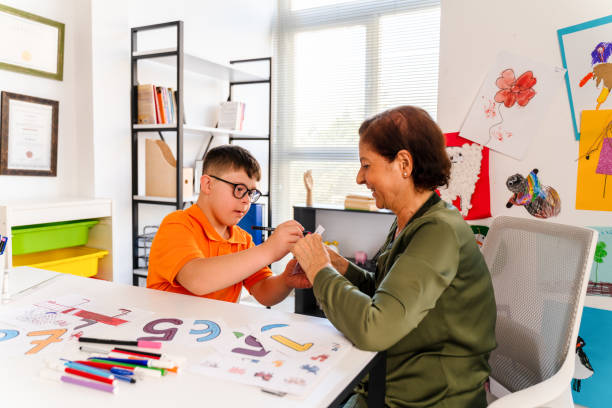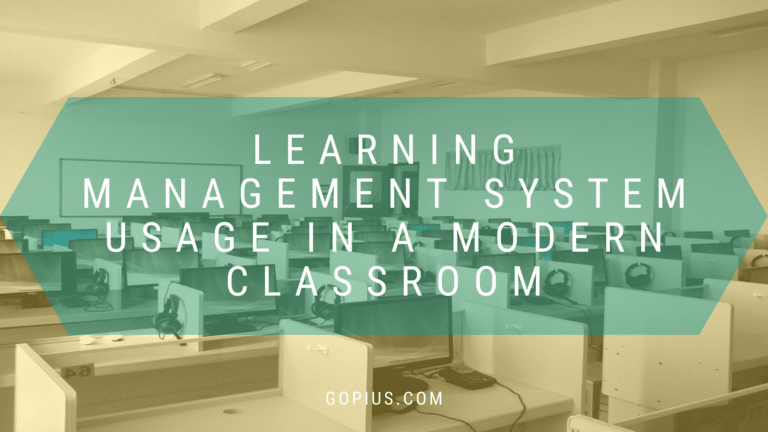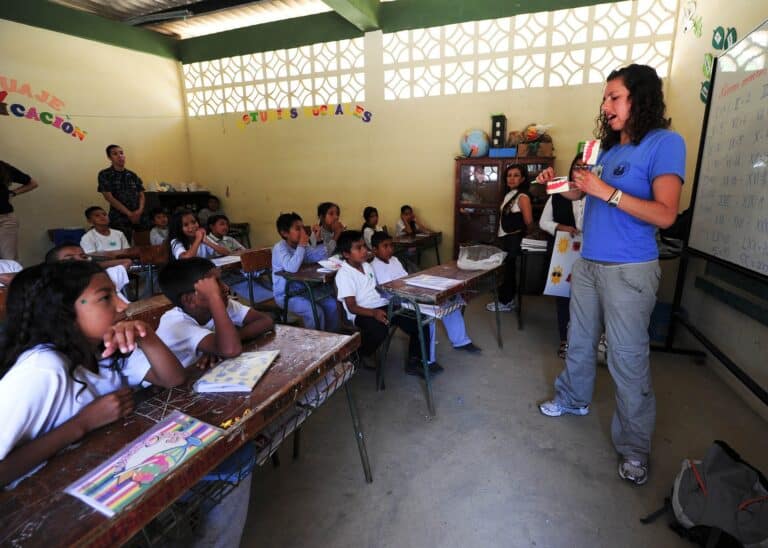How To Become A Special Education Teacher

How To Become A Special Education Teacher – To become one, individuals typically need to complete a bachelor’s degree in special education or a related field, obtain a teaching license, and may be required to pass state specific exams.
The specific requirements can vary by state. For example, in Kentucky, aspiring special educators must complete a teacher preparation program, verify one year of teaching experience at the relevant grade level, pass qualification exams, and submit official transcripts to qualify for a teaching license.
In Nevada, individuals can become licensed special education teachers through alternative routes or by completing a state approved program like the Nevada Teachers of Tomorrow program, which requires a four year bachelor’s degree and passing the Praxis tests.
Read: Scholarships for Future Teachers
The Role of A Special Education Teacher
Special education teachers work with students who have a range of disabilities, such as learning disabilities, autism spectrum disorders, intellectual disabilities, and emotional or behavioral disorders.
Their mission is to provide tailored instruction, support, and accommodations to help students overcome challenges and achieve their full potential. Beyond academic instruction, special education teachers also contribute to the social and emotional development of their students, promoting a sense of belonging and self confidence.
1. Individualized Education Program (IEP) Development: Special education teachers collaborate with other professionals, parents, and administrators to develop and implement Individualized Education Programs (IEPs) for each student with special needs. IEPs outline specific learning goals, accommodations, and strategies tailored to the individual student.
2. Instructional Planning and Adaptation: Special education teachers create and adapt lesson plans to meet the unique needs of their students. They may use different teaching methods, materials, and resources to accommodate diverse learning styles and abilities.
3. Classroom Management: Managing a classroom with students who have various abilities and needs requires special education teachers to be skilled in effective classroom management techniques. They create a positive and inclusive learning environment while addressing behavioral challenges.
4. Collaboration: Special education teachers work closely with general education teachers, support staff, and specialists to promote an inclusive educational experience. Collaboration is essential for ensuring that students with special needs have access to the appropriate resources and support.
5. Assessment and Progress Monitoring: Special education teachers assess the progress of their students regularly, adjusting instructional strategies as needed. They may use formal and informal assessments to track academic, social, and behavioral development.
6. Advocacy: Special education teachers often serve as advocates for their students, ensuring that they receive the services and accommodations outlined in their IEPs. They may work with parents, administrators, and other stakeholders to address the unique needs of each student.
7. Specialized Instruction: Providing specialized instruction in areas such as reading, math, communication, and social skills is a key aspect of the role. Special education teachers adapt their teaching methods to accommodate the diverse needs of their students.
8. Emotional Support: Special education teachers often provide emotional support to students who may face challenges related to their disabilities. Building a positive and supportive relationship with students is crucial for their overall wellbeing and success in the classroom.
9. Professional Development: Staying current with best practices in special education and participating in professional development opportunities is essential for special education teachers. This helps them refine their skills and stay informed about new strategies and interventions.
Overall, special education teachers play a vital role in fostering an inclusive and supportive learning environment, ensuring that students with special needs have the opportunity to succeed academically and socially.
Educational Requirements to Become a Special Education Teacher
Becoming a special education teacher involves meeting specific educational requirements to ensure that educators are well equipped to support students with diverse needs. The specific requirements can vary by location and educational institutions, but the following is a general guide to the educational path one might take to become a special education teacher:
1. Bachelor’s Degree:
The first step is typically earning a bachelor’s degree. Many aspiring special education teachers pursue a degree in special education, but some may choose related fields such as elementary education or secondary education. Some individuals also pursue dual certification by combining special education with another content area, such as English, mathematics, or science.
2. Relevant Coursework:
Special education programs usually include coursework that covers topics such as learning disabilities, behavior management, assessment and evaluation, individualized education plan (IEP) development, and inclusive teaching strategies.
3. Field Experience:
Many teacher preparation programs, including those for special education, require field experiences or practicums. These experiences provide aspiring teachers with the opportunity to work in real classrooms, gaining handson experience under the supervision of experienced educators.
4. Student Teaching:
A crucial component of the educational requirements is student teaching or an internship. This handson experience allows individuals to apply the knowledge gained in coursework to actual teaching situations. During this time, aspiring special education teachers work closely with students who have diverse learning needs, refining their instructional strategies and classroom management skills.
5. Certification or Licensure:
After completing the required coursework and practical experiences, individuals must obtain state certification or licensure to become a special education teacher. Certification requirements vary by state, but they typically include passing standardized exams and completing other state specific requirements. Some states may also require additional coursework or professional development.
6. Master’s Degree:
While a bachelor’s degree is the minimum requirement, some educators choose to pursue a master’s degree in special education or a related field to deepen their knowledge and enhance their teaching skills. A master’s degree can also open up opportunities for specialization in specific areas of special education.
7. Continuing Education:
Special education teachers are often required to engage in continuing education to maintain their certification or licensure. This may involve attending workshops, seminars, or pursuing additional coursework to stay updated on the latest research, teaching strategies, and assistive technologies.
8. Specialized Training:
Depending on the specific needs of the students a teacher may work with, additional training or certification in specific areas such as autism spectrum disorders, emotional and behavioral disorders, or other specializations may be beneficial.
It’s essential for individuals aspiring to become special education teachers to research and understand the specific requirements of the state or region where they plan to teach. Each state may have its own certification process, and some may have reciprocity agreements that recognize certifications from other states.
The educational requirements to become a special education teacher involve obtaining a relevant bachelor’s degree, gaining practical experience through student teaching and fieldwork, and obtaining state certification or licensure. Optional advanced degrees and ongoing professional development contribute to the continuous growth and effectiveness of special education teachers in supporting students with diverse learning needs.
Career Paths for Special Education Teachers
Special education teachers play a vital role in supporting students with diverse learning needs, and their expertise is in demand across various educational settings. While the primary role is typically in K12 schools, there are several career paths and opportunities for special education teachers to explore:
1. K12 Education:
Public Schools: Special education teachers can work in public schools, serving students with various disabilities. They collaborate with other educators, develop individualized education plans (IEPs), and provide tailored instruction to meet the unique needs of their students.
Private Schools: Private schools, including those specifically designed for students with disabilities, also employ special education teachers. These schools may offer a smaller studenttoteacher ratio, allowing for more personalized instruction.
Charter Schools: Special education teachers may find opportunities in charter schools that focus on specific educational approaches or themes. Charter schools often have flexibility in their curriculum and may have a strong commitment to inclusivity.
2. Specialized Education Settings:
Specialized Schools: Some special education teachers work in schools dedicated exclusively to students with specific disabilities, such as schools for the deaf or schools that focus on autism spectrum disorders.
Residential Treatment Centers: Special education teachers may work in residential treatment centers that provide educational and therapeutic services for students with significant emotional or behavioral challenges.
3. Early Intervention Programs:
Special education teachers can work in early intervention programs, supporting infants and toddlers with developmental delays. These programs aim to identify and address developmental issues at an early age to promote optimal learning and development.
4. PostSecondary Education:
Some special education teachers transition to roles in postsecondary education. They may work in colleges or vocational institutions, providing support services to students with disabilities as they pursue higher education and vocational training.
5. Administration and Leadership Roles:
Experienced special education teachers may choose to transition into administrative roles, such as special education coordinators, directors, or supervisors. In these positions, they can influence policies, manage programs, and provide guidance to other educators.
6. Consultation and Advocacy:
Special education teachers may work as consultants, providing expertise to schools, districts, or educational organizations. They can also engage in advocacy work, promoting policies and practices that support inclusive education for individuals with disabilities.
7. Assistive Technology Specialists:
With the increasing use of technology in education, special education teachers can specialize in integrating technology and assistive technology tools to enhance learning experiences for students with disabilities.
8. Private Tutoring:
Some special education teachers choose to work independently, offering tutoring or consulting services to students with disabilities. This allows for more personalized and oneonone support.
9. Nonprofit Organizations:
Special education teachers can contribute their expertise to nonprofit organizations that focus on advocacy, research, or providing services for individuals with disabilities.
10. International Opportunities:
Opportunities may exist for special education teachers to work internationally, either in international schools or with organizations that provide education and support services in different countries.
11. Curriculum Development:
Special education teachers with a passion for curriculum development may contribute to creating instructional materials and resources tailored to the needs of students with disabilities.
Special education teachers often find that their skills are transferable and can be applied in various settings. The diversity of career paths reflects the increasing recognition of the importance of inclusive education and the unique skills that special education teachers bring to the field.







